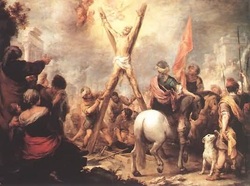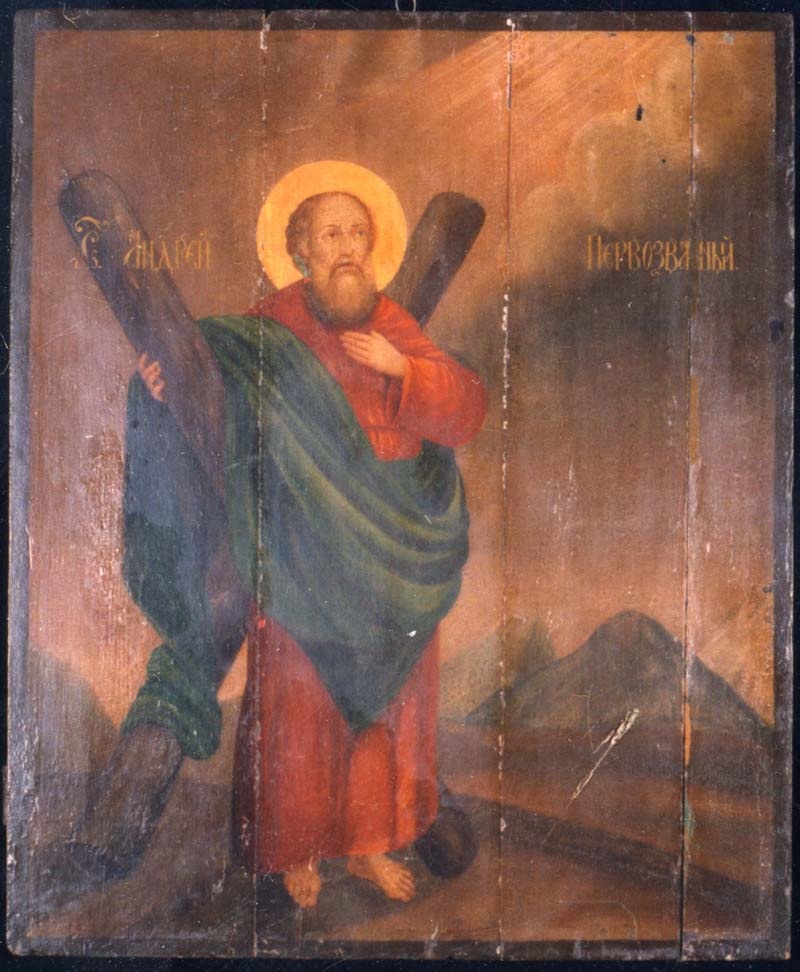
Then Aegeas, being angry, answered him, Boast no more of this thy Christ. He spake words even such as thine, but they availed him not, and he was crucified by the Jews. Whereto Andrew boldly answered that Christ had given himself up to die for man's salvation; but the Proconsul blasphemously interrupted him, and bade him look to himself, and sacrifice to the gods. Then said Andrew, We have an altar, whereon day by day I offer up to God, the Almighty, the One, and the True, not the flesh of bulls nor the blood of goats, but a Lamb without spot: and when all they that believe have eaten of the Flesh thereof, the Lamb that was slain abideth whole and liveth. Then Aegeas being filled with wrath, bound the Apostle in prison. Now, the people would have delivered him, but he himself calmed the multitude, and earnestly besought them not to take away from him the crown of martyrdom, for which he longed and which was now drawing near.
Some short while after, he was brought before the judgment seat, where he extolled the mystery of the cross, and rebuked Aegeas for his ungodliness. Then Aegeas could bear with him no longer, but commanded him to be crucified, in imitation of Christ. Andrew, then, was led to the place of martyrdom, and, as soon as he came in sight of the cross, he cried out: O precious cross, made so fair and goodly by the sweet body of my Lord, how long have I desired thee! how warmly have I loved thee! how constantly have I sought thee! And, now that thou art come to me, how is my soul drawn to thee! Welcome me from amongst men, and join me anew to my Master, that as by thee he redeemed me, so by thee also he may take me unto himself. So he was fastened to the cross, whereon he hung living for two days, during which time he ceased not to preach the faith of Christ, and, finally, passed into the Presence of him the likeness of whose death he had loved so well. All the above particulars of his last sufferings were written by the Priests and Deacons of Achaia, who bear witness to them of their own knowledge. Under the Emperor Constantine the bones of the Apostle were first taken to Constantinople, whence they were afterwards brought to Amalfi. In the Pontificate of Pope Pius II, his head was carried to Rome, where it is kept in the Basilica of St. Peter.





